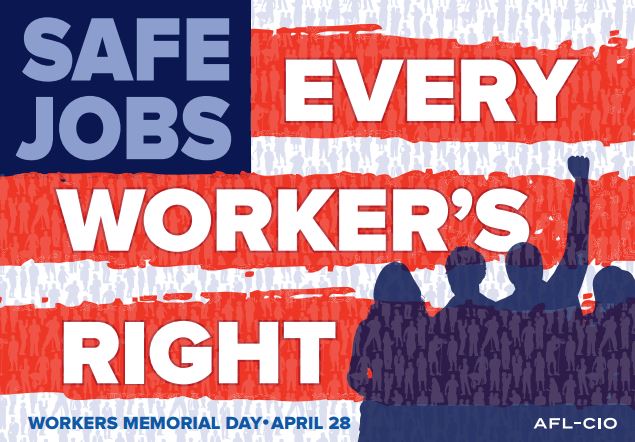As our nation debates the future of transportation and infrastructure, Workers Memorial Day is a solemn reminder that workplace safety must be central to the discussion. Every year, thousands of Americans — including those who build, operate and maintain our nation’s transportation system — are hurt or killed on the job. It goes without saying that these men and women deserve far better.
From the establishment of the Occupational Safety and Health Act to the maturation of transportation safety policies regulated by the U.S. Department of Transportation, Congress and the federal government have taken many important steps to protect working people, but more can and needs to be done.
Improving safety can start with something as simple as ensuring the men and women on the frontlines of our nation’s transportation system are able to get enough sleep. Just ask flight attendants who find themselves running on fumes thanks to minimum rest requirement laws that are too easily manipulated by airlines. Or intercity motorcoach drivers who are exempt from the overtime provision in the Fair Labor Standards Act. As a result, drivers are forced to work two or three jobs just to make ends meet, leaving insufficient time for them to rest.
Fatigue is also prevalent in our nation’s freight rail industry, in part because of chaotic and unpredictable work schedules. Current laws limit a work shift to 12 hours and mandate 10 hours of undisturbed rest after a shift. However, after those 10 hours, rail workers can be called at any time — even in the middle of the night — with as little as an hour and 15 minutes’ notice, to begin a shift. Earth to railroads: This practice isn’t responsible. It is dangerous.
So is the absurd notion that 19,000-ton freight trains, many filled with hazardous materials, can be safely operated with fewer than two crew members. Commonsense legislation introduced in the House of Representatives seeks to ensure that two qualified crew members on all freight locomotives is the standard. Moreover, we must finally put in place measures to ensure first responders have the training and resources they need to respond appropriately when accidents involving trains carrying hazardous materials do occur.
Mitigating violence directed at our nation’s transit drivers and airport customer service agents by unruly, frustrated passengers must also be a priority. Congress has already requested that the federal regulators set up rules on how to mitigate driver assault – but those rules must be enforced and implemented. Assaults against airline customer service agents are punishable by federal law, as clarified recently by the Department of Justice, but more needs to be done. Congress should require “Employee Assault Prevention and Response Plans” at airports that will set clear procedures for how employees, management and law enforcement document and respond to violent incidents.
Finally, workers in all modes of transportation – and in all sectors of the economy – must have the ability to form and join unions. With strong union contracts, working people are able to secure the training, equipment and safety protocols they need to ensure workplaces are as safe as possible.
For decades, TTD and our affiliated unions have pushed for smart, effective policies that help ensure transportation workers — and all working people — go to the jobsite knowing they will make it home again. This Workers Memorial Day, we remember and honor our brothers and sisters who have been injured or killed on the job and renew our commitment to fight for commonsense solutions that keep our nation’s transportation workforce out of harm’s way.
